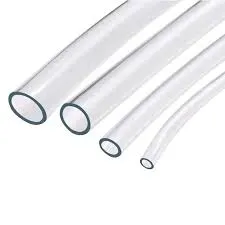Nov . 22, 2024 03:43 Back to list
hdpe board
Understanding HDPE Board Versatile Applications and Benefits
High-Density Polyethylene (HDPE) board is rapidly becoming a prominent material in various industries due to its exceptional properties and versatility. This article explores the characteristics, applications, and advantages of HDPE boards, making them an ideal choice for numerous projects.
What is HDPE Board?
HDPE board is a sheet made from high-density polyethylene, a thermoplastic polymer known for its high strength-to-density ratio. It is manufactured through the polymerization of ethylene, creating a solid material that is both durable and resilient. The board is available in a variety of thicknesses, colors, and finishes, making it suitable for a wide range of applications.
Key Properties of HDPE Board
1. Durability HDPE boards are highly resistant to impact, UV rays, and various chemicals. This makes them suitable for both indoor and outdoor use without the fear of deterioration over time.
2. Water Resistance One of the standout features of HDPE is its excellent water resistance. The material doesn’t absorb moisture, which prevents warping and ensures longevity even in wet environments.
3. Ease of Maintenance Cleaning and maintaining HDPE boards is straightforward. A simple wash with soap and water can restore its pristine look, making it ideal for environments where hygiene is critical.
4. Eco-Friendliness HDPE boards are recyclable, contributing to a more sustainable environment. Many manufacturers offer products made from recycled HDPE, further reducing the ecological footprint.
5. Customizability HDPE boards can be easily cut, shaped, and assembled, allowing for customization according to specific project needs. This flexibility makes it a favorite among designers and engineers.
Applications of HDPE Board
HDPE boards find applications across various sectors due to their unique properties. Some of these applications include
hdpe board

1. Construction and Building In the construction industry, HDPE boards are used for structural applications, such as walls, partitions, and roofing materials. Their lightweight nature combined with strength makes them an excellent substitute for traditional materials.
2. Furniture Manufacturing With their aesthetic appeal and durability, HDPE boards are increasingly used in outdoor furniture. Their resistance to weathering ensures that they maintain their appearance and functionality over time.
3. Signage The vivid colors and ability to print on HDPE boards make them popular for signage. They are commonly used for advertisements, directional signs, and informational displays, especially in outdoor settings.
4. Marine Applications Due to their resistance to moisture and saltwater, HDPE boards are frequently used in marine applications, including dock floats and boat components.
5. Agriculture In the agricultural sector, HDPE boards are utilized for constructing storage containers, barriers, and livestock housing due to their durability and resistance to harsh chemicals.
6. Food Industry HDPE is deemed safe for food contact, making it a suitable material for food processing areas, cutting boards, and food storage containers. Its non-porous surface prevents the absorption of bacteria.
Advantages of Choosing HDPE Board
Opting for HDPE board over traditional materials brings a multitude of benefits. Its resistance to moisture, chemicals, and UV damage extends the life of products made from HDPE, reducing the need for frequent replacements. Additionally, the lightweight nature of HDPE makes it easier to handle and transport, ultimately saving on labor and shipping costs.
Moreover, the sustainability factor cannot be overlooked. With increasing awareness around environmental issues, the recyclable nature of HDPE aligns with eco-conscious practices. Manufacturers are adapting to this trend by utilizing recycled HDPE in their products, further emphasizing the importance of sustainable sourcing.
Conclusion
In conclusion, HDPE boards present a remarkable blend of versatility, durability, and sustainability that makes them an invaluable resource across various industries. Whether in construction, manufacturing, signage, or marine applications, the benefits of using HDPE board are undeniable. As industries continue to seek efficient, cost-effective, and environmentally friendly materials, HDPE boards are poised to play a significant role in future innovations and practices. Choosing HDPE boards may be one of the best decisions for those looking to enhance their projects while being mindful of quality and sustainability.
-
Premium PVC Soft Sheets: Clear, Flexible & Durable
NewsAug.12,2025
-
Premium PVC Round Rods: Durable, Chemical Resistant, Easy to Machine
NewsAug.11,2025
-
PP U-channel: Chemical-Resistant, Lightweight & Durable
NewsAug.10,2025
-
Transparent PVC Pipe: Clear Flexible Tubing for Fluids
NewsAug.09,2025
-
Durable PP Rigid Sheet: Versatile & High-Quality Plastic Panels
NewsAug.08,2025
-
Premium Glossy PP Rigid Sheet – Durable & Versatile
NewsAug.07,2025

